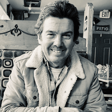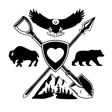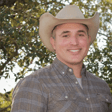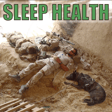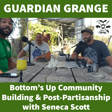
The Vision | Veteran Healing Through Nature & Community with Mark "Matz" Matzeldelaflor
Guardian Grange is a veteran powered humanitarian and environmental regeneration project, founded by a former US Navy SEAL to protect natural resources, strengthen communities, and uplift veterans with a renewed sense of purpose. Our focus is facilitating individual and community healing through working in nature. We are growing a decentralized network of regenerative permaculture properties to build the infrastructure for a soil based economy, and serve as healing spaces for veterans and co-creative community projects that build deep-rooted relationships and inspire stronger sense of community for generations to come.
Hello friends and fellow humans, thank you for tuning in to the very first Guardian Grange podcast. I am your host, Mark Matzeldelaflor, founder of our non-profit mission and Co-creative Engagement Officer.
In this first episode, I'm going to discuss a little bit about myself, and my life's path from early childhood to becoming a Navy SEAL, combat experience, dealing with the tragedy of suicide and veterans mental health issues, experience with earth based sacraments (or entheogens, often referred to as psychedelics or "hallucinogens" with undeserving stigma) and reigniting my fire for life which is what lead me to start this nonprofit mission to facilitate veteran healing through working with nature... and why I've dedicated my life to building a regenerative permaculture network for food sovereignty and a community focused infastructure for a soil based economy...
We'll dive into the Guardian Grange vision, and chat about what our core team has been able to accomplish so far... where we're going, and how you can assist.
Finally, I'll close with how you can help support our effort (see links below), manifesting the Guardian Grange vision, along with some final thoughts...
Our mission at Guardian Grange is to uplift veterans, protect nature's resources and strengthen communities through humanitarian and environmental services dedicated to repurposing veterans’ skillsets for regenerative agriculture, holistic land management, rehabilitating public building projects, repairing ecological damage, and transforming distressed land into healthy ecosystems. By connecting to nature in a community setting to do good works, veterans can reignite passion and rediscover purpose to lead communities through service, protecting the land and people in new and honorable ways.
While we are a young organization, there is no shortage of work to be done, and we have been diligently building programs that will require significant resources and volunteer effort. Any contribution to our cause will greatly help us achieve our goals by funding veteran rehabilitation, land restoration, and other activities that support our mission.
Please stay connected to Guardian Grange on social media (Instagram, Facebook, Twitter, YouTube, etc.) and at our website www.guardiangrange.org to follow along with our progress as we help transform the world into a more beautiful, healthy, and friendly place one community at a time.
Guardian Grange is a registered non-profit 501(c)(3), EIN 85-3841605. Contributions are tax deductible.
Your donation supports our efforts to improve humanity and the environment by uplifting veterans to protect natural resources and strengthen communities.
Donations
Donate directly through our Donorbox campain here: https://donorbox.org/guardian-grange-donation
You can also donate through our website https://www.guardiangrange.org/ by clicking the "Support The Vision" button.
Survey Link
https://forms.gle/FJTTsdobTtp2mcDJ8 (Open til 15 Nov 2021)
